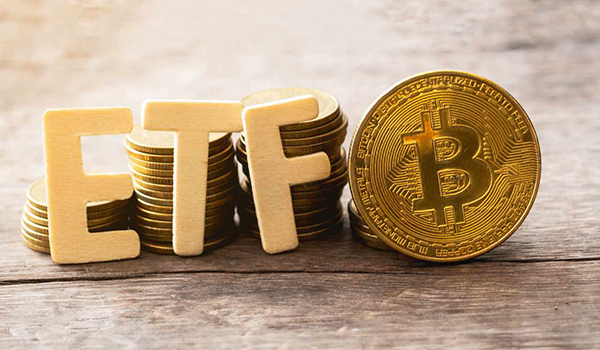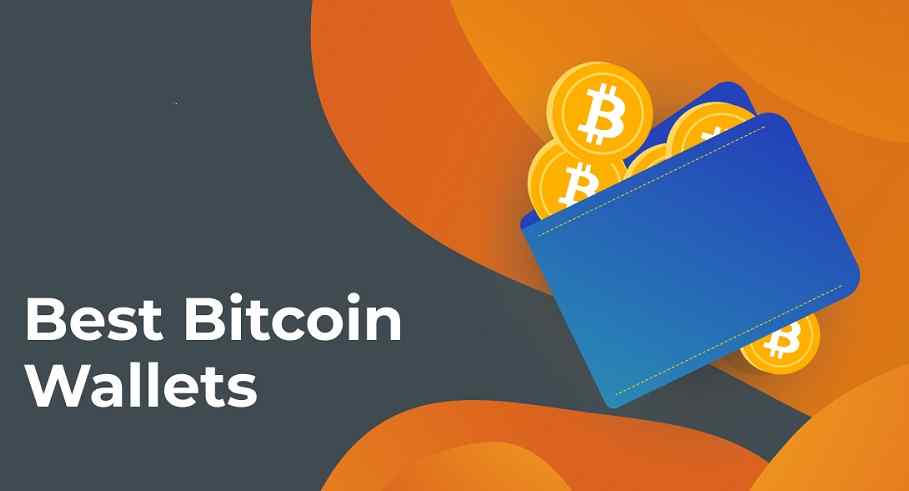Navigating the waters of Bitcoin ETF regulation

Bitcoin Exchange Traded Funds (ETFs) represent a significant step forward in the world of finance, serving as a bridge between traditional investment mechanisms and the rapidly expanding crypto-currency market. By offering a structure more familiar to investors accustomed to stock markets, these ETFs provide exposure to Bitcoin without requiring direct ownership of the crypto-currency, thereby facilitating access to this digital asset while minimising the risks associated with security and private key management.
Interest in Bitcoin ETFs has grown considerably, driven by the promise of integrating crypto-currencies more closely into the global financial system. This development could not only attract more institutional and retail investors to Bitcoin, but also bring additional legitimacy and stability to the crypto-currency sector. The impact of these ETFs is potentially vast, potentially influencing the liquidity, volatility and overall adoption of Bitcoin. This review aims to decipher the regulatory complexities and consider the future of Bitcoin ETFs within the overall financial framework.
Understanding Bitcoin ETFs
Bitcoin ETFs (Exchange-Traded Funds) are exchange-traded funds that aim to track the price of Bitcoin, allowing investors to buy shares in the ETF on traditional exchanges without having to own Bitcoins directly. These financial products seek to replicate the performance of Bitcoin by holding Bitcoins or through Bitcoin futures, offering exposure to the cryptocurrency while being traded on regulated and accessible platforms.
Bitcoin ETF regulations offer several advantages for investors wishing to engage with the crypto-currency market without navigating the complexities of direct ownership, such as the secure creation and management of digital wallets, private keys, or concerns about the security of crypto exchanges. They offer simplicity of access comparable to investing in equities, with the added benefit of diversification and liquidity, without the technical and security hassles associated with direct ownership of crypto-assets.
The current state of Bitcoin ETF offerings varies considerably between jurisdictions, with growing but cautious acceptance in some markets. While regulators in many countries are still assessing the implications and appropriate regulatory frameworks for these instruments, the reception in the markets where they are available has been overwhelmingly positive. Investors are showing strong interest in these investment vehicles, which allow them to participate in the dynamics of the crypto-currency market in a regulated and secure manner. However, the availability and popularity of Bitcoin ETFs continues to evolve as the regulatory framework develops and understanding of the market matures.
The regulatory landscape
The regulatory landscape surrounding Bitcoin ETFs is complex and varies considerably from market to market, involving several financial regulators responsible for approving and overseeing these products. In the United States, the Securities and Exchange Commission (SEC) plays a central role in the evaluation and approval of ETFs, including those linked to Bitcoin. Other jurisdictions have their own regulatory authorities, such as the Autorité des marchés financiers (AMF) in France or the Financial Conduct Authority (FCA) in the UK, which review ETF proposals in their respective markets.
These regulators take several criteria and considerations into account when evaluating Bitcoin ETF proposals. Investor protection is at the forefront, with a particular focus on transparency, liquidity, risk management and the prevention of fraud and market manipulation. They also examine the robustness of the ETF’s proposed infrastructure, including the safe custody of the underlying assets, the accuracy of the tracking of the Bitcoin benchmark, and mechanisms to ensure fair and accurate pricing of the ETF’s shares.
Regulators also assess the maturity and stability of the Bitcoin market itself, including market depth and liquidity, as well as the existence of reliable derivatives markets that can provide price discovery and risk hedging mechanisms. The ability of an ETF to replicate the performance of Bitcoin reliably and securely without exposing investors to unnecessary risk is crucial.
Challenges and controversies
Bitcoin ETF proposals have encountered various challenges and hurdles from regulators, reflecting concerns about the maturity of the crypto-currency market and investor protection. Regulators’ main concerns include market manipulation, liquidity, valuation of underlying assets and overall investor protection.
Market manipulation is a major concern, given the volatility of Bitcoin prices and proven cases of manipulative behaviour on some crypto-currency exchanges. Regulators are particularly vigilant about the ability of ETF promoters to prove that their products can withstand such practices and provide an accurate representation of the Bitcoin market without exposing investors to unacceptable risks.
Liquidity is another significant issue, with regulators questioning the ability of crypto-currency markets to handle large order flows without negatively impacting prices. This includes concerns about the ability of ETFs to execute large trades without causing substantial slippage, which could harm investors.
In terms of valuation, determining the fair value of Bitcoin is complex due to its decentralised nature and the diversity of exchange platforms, each with its own price dynamics. Regulators require robust valuation methods to ensure that ETFs accurately reflect the market.
Proposals for Bitcoin ETFs have been rejected or delayed by bodies such as the SEC in the US, mainly because of these concerns. Reasons often include insufficient evidence that the underlying markets are free from manipulation and that the ETF’s infrastructure is sufficiently robust to ensure adequate investor protection.
These challenges underline regulators’ caution in the face of financial innovation, seeking to balance the growth potential of crypto-currency markets with the overriding need to protect investors and maintain market integrity.
Global perspectives on the regulation of bitcoin ETFs
The regulatory approach to Bitcoin ETFs varies considerably around the world, reflecting the diversity of perspectives on crypto-currencies and their integration into national financial systems. In North America, Canada has been a pioneer, approving several Bitcoin ETFs, thanks to a relatively open and innovative regulatory framework. Canadian authorities have shown a willingness to understand and integrate technological advances into the financial market, enabling investors to access Bitcoin-related products in a regulated way.
In the United States, the Securities and Exchange Commission (SEC) has taken a more cautious approach. Although there has been substantial interest and proposals for Bitcoin ETFs, the SEC has so far expressed significant concerns related to market manipulation and investor protection, delaying the approval of pure Bitcoin ETFs.
In Europe, the regulatory framework is fragmented due to the diversity of national regulatory authorities. However, some countries have shown an openness towards innovative financial products, including digital assets. ETF-like products, such as Bitcoin ETPs (Exchange-Traded Products), have been successfully launched on exchanges in Germany and Switzerland, demonstrating a more liberal approach.
Asia presents a mixed picture, with some countries imposing strict restrictions on crypto-currencies while others are actively exploring regulatory frameworks to facilitate innovation in this field. So far, adoption of Bitcoin ETFs in Asia has been limited, reflecting regulatory caution and ongoing debates on how to deal with crypto-currencies.
The successes of Bitcoin ETFs in Canada and parts of Europe show that, with the right regulatory framework focused on security, transparency and investor protection, it is possible to integrate innovative financial products based on crypto-currencies into traditional financial markets.
Follow – https://bitcointodays.com for More Updates




